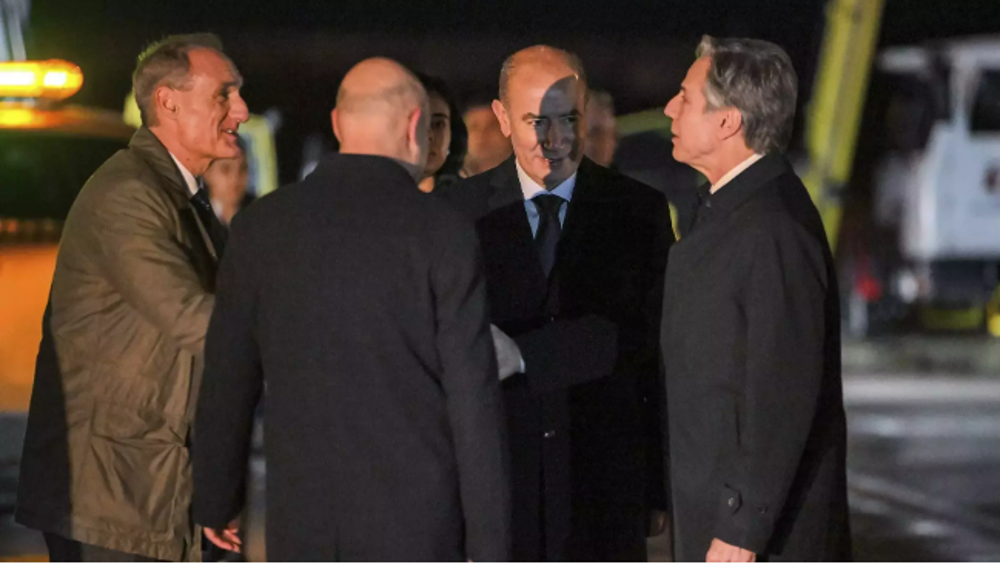Nine agents in charge of Kennedy security drunk on assassination day
Secret Service agents in charge of protecting former US President John Fitzgerald Kennedy were drunk at the time of his assassination, a report has revealed.
Nine of the twenty eight Secret Service men who accompanied the 35th US president in Dallas on November 22, 1963, the day he was assassinated by Lee Harvey Oswald, had been out in local clubs until the early hours of the morning, Newsweek reported Saturday.
Citing a new book dubbed Drinking in America: Our Secret History, the report noted that a week after the Kennedy’s murder, his successor President Lyndon Johnson ordered the first official investigation into the event.
Earl Warren, then-chief justice of the Supreme Court, was chosen to lead the probe. Warren initially hesitated to accept Johnson’s mandate due to the significant political magnitude of the case.
However, only three days after reluctantly accepting the job, Warren found that Secret Service agents had been out on the town socializing and drinking deep into the night of the assassination.

Three of the Secret Service agents who were in the follow-up car, riding a few feet from Kennedy, have admitted to staying up very late and drinking the whole night, an activity strictly prohibited in the Secret Service.
Warren also found that one of the agents kept drinking until five in the morning. Kennedy was assassinated 7.5 hours later on 12:30 pm.
A trusted journalist, named Drew Pearson, who was close friends with Warren found out that the Secret Service agents visited the Fort Worth Press Club after midnight and six of them then left for an offbeat joint called the Cellar Coffee House.
“Obviously men who have been drinking until nearly three a.m. are in no condition to be trigger-alert or in the best physical shape to protect anyone,” Pearson wrote about the agents in the Kennedy motorcade.
Pearson said his information came from another reporter whose bosses were too afraid to publish a story of such magnitude that would incriminate Secret Service agents and the club owners.
The Warren commission questioned the agents and confirmed that they had been drinking.
The report noted that though clearly at fault, the agents themselves were devastated by their irresponsibility and members of the panel were eager to keep them from going down in history as men whose negligence contributed to JFK’s assassination.
Warren, however, could not hide his outrage and voiced his anger in 1964 by questioning James Rowley, then-director of the Secret Service, who acknowledged Pearson’s findings under oath.
Rowley was bombarded with criticism for not firing any of the agents. He said in response that he did not want to “stigmatize” the men or their families in the face of the assassination.
Warren even told Rowley that if the agents were not drunk, they would have taken seriously citizens’ reports that a gun barrel stuck out of the sixth-floor window of the building that Harvey supposedly used to target the president.
“Some people saw a rifle up in that building,” Warren went on. “Wouldn’t a Secret Service man in this motorcade, who is supposed to observe such things, be more likely to observe something of that kind if he was free from any of the results of liquor or lack of sleep than he would otherwise? Don’t you think that they would have been more alert, sharper?”
In his book, The Dark Side of Camelot, renowned investigative journalist Seymour Hersh notes that by late 1963, the drinking problem among some Secret Service agents had reached a point where “a few members of the presidential detail were regularly remaining in bars until the early morning hours.”
The Secret Service is one of the oldest federal law enforcement agencies in the US which was founded in the nineteenth century to investigate financial crimes and combat counterfeiting after the Civil War. The department’s formation was one of the last things President Abraham Lincoln approved on the day of his assassination.
Lincoln, the nation’s 16th president, was killed by a single shot in a theater on April 15, 1865, due to the negligence of his bodyguard who was taking a break at a bar.
‘All wars have rules. All of those rules have been broken’ by Israel
VIDEO | Report flags India’s violation of rights of Rohingya detainees
Turkey's foreign minister meets Syria's de facto leader in Damascus
'Next to impossible' to rescue patients from Gaza's Kamal Adwan Hospital: Director
VIDEO | Vietnam current prosperity
Report blames gasoil exports for shortage at Iranian power plants
VIDEO | Hind Rajab Foundation names Israeli war criminals vacationing after Gaza genocide
VIDEO | Australians rally for Gaza ahead of Christmas festivities










 This makes it easy to access the Press TV website
This makes it easy to access the Press TV website